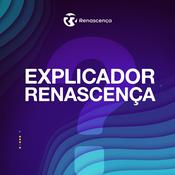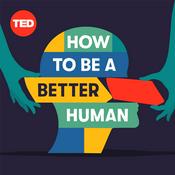40 episódios
- Palestine and the Palestinians are often the subjects of conversations in the news, on blogs and in judicial opinions, but not present in conversations themselves. The issues are treated episodically in connection with dramatic events or judicial processes or UN resolutions, and these can entrench an atomization of attention into the atrocities committed in the Israeli-occupied territories of East Jerusalem, Gaza and the West Bank, restrict visibility of historical continuities and miss more gradual and pervasive developments. One difficulty with international courts, which have been particularly prominent recently, is that the proceedings are long and often so far removed from the people they affect that they can miss complex human dimensions. Discussions about sovereignty, statehood, security, borders, violations of conventions and the interpretation of UN resolutions might not capture what is happening on the ground. Each of these areas could fill a podcast in its own right, but this episode tries to bring out a sense of the range of legal questions concerning the past, present and future of Palestine. Victor Kattan (Nottingham; also adviser to Britain Owes Palestine campaign) is joined by Mona Rishmawi (inter alia, visiting professor at the Geneva Academy of International Humanitarian Law and Human Rights) and Sonia Boulos (Antonio de Nebrija University, Spain). For materials referred to, see EJIL:Talk!
- In this episode, Philippa Webb and Marko Milanovic are joined by Nicolas Angelet and Oona Hathaway to discuss the legality of the US strikes against suspected drug boats in the Caribbean and the additional threats made by the United States against Venezuela, which include a possible land invasion. The hosts and their guests then turn to the recent UNRWA advisory opinion of the International Court of Justice, discussing some of the interesting questions that it raises, including the inviolability of UN premises during armed conflict. In doing so, they also reflect on the downward spiral of the international legal order.
- Nehal Bhuta & Megan Donaldson
We see today flagrant breaches of the prohibitions on the threat or use of force, but also renewed pressure and scrutiny on a related but broader prohibition, the prohibition of intervention, forcible or otherwise. In some ways, it is this broader norm of non-intervention which presents the most deep-seated puzzles in international law and international politics. In a world of profound interdependence, when should states butt out of other states' business? Nehal Bhuta (Edinburgh) and Megan Donaldson (UCL) are joined by Marco Roscini (University of Westminster) and Frédéric Mégret (McGill University) to explore the past, present and future of this norm.
Scholarship referred to in the episode includes Marco Roscini, International Law and the Principle of Non-Intervention (2024); and Frédéric Mégret, Interference in Sovereign Affairs and the Discursive Economy of International Law (2025). Episode 37: The ICJ’s Advisory Opinion on Climate Obligations: Remarkable, Radical and Robust
30/7/2025 | 51minThere were gasps in the courtroom when the ICJ delivered its advisory opinion on the obligations of States in respect of climate change on 23 July 2025. In this episode, Margaret Young (Melbourne Law School), Phoebe Okowa (Queen Mary University of London, member of the International Law Commission) and Lavanya Rajamani (Oxford) explore how, with its robust and at times radical reasoning, the Court has delivered a truly significant moment for international law.
Scholarship referred to in the episode includes Phoebe N. Okowa, State Responsibility for Transboundary Air Pollution in International Law (2000); Lavanya Rajamani, ‘Interpreting the Paris Agreement in its Normative Environment’ (2024) 77 Current Legal Problems 167; Margaret A. Young, ‘Climate Change and Law: A Global Challenge for Legal Education’ (2021) 40 University of Queensland Law Journal 351; and Margaret A. Young, ‘Fragmentation’ in Lavanya Rajamani and Jacqueline Peel (eds), Oxford Handbook of International Environmental Law (2021) 85.- In this episode, Dapo Akande, Marko Milanovic and Philippa Webb are joined by Tom Dannenbaum to discuss two sets of issues. First, the legality of the use of force by Israel and the United States against Iran, and specifically its nuclear programme, from the standpoint of the jus ad bellum. The discussion turns around the possible justifications that Israel can give for its use of force, including the notion of stopping an imminent armed attack by Iran. Second, the recent judgment of the Grand Chamber of the European Court of Human Rights in the interstate case of Ukraine and the Netherlands v. Russia, which deals with various aspects of the war in Ukraine, including the downing of the MH17. In particular, the contributors analyze the Court’s approach to extraterritorial jurisdiction and to the network of relationships between the European Convention, international humanitarian law and the jus ad bellum.
Mais podcasts de Ensino
Podcasts em tendência em Ensino
Sobre EJIL: The Podcast!
EJIL: The Podcast! aims to provide in-depth, expert and accessible discussion of international law issues in contemporary international and national affairs.
It features the Editors of the European Journal of International Law and of its blog, EJIL: Talk!
The podcast is produced by the European Journal of Law with support from staff at the Blavatnik School of Government, University of Oxford.
Sítio Web de podcastOuve EJIL: The Podcast!, Coach Talks e muitos outros podcasts de todo o mundo com a aplicação radio.pt

Obtenha a aplicação gratuita radio.pt
- Guardar rádios e podcasts favoritos
- Transmissão via Wi-Fi ou Bluetooth
- Carplay & Android Audo compatìvel
- E ainda mais funções
Obtenha a aplicação gratuita radio.pt
- Guardar rádios e podcasts favoritos
- Transmissão via Wi-Fi ou Bluetooth
- Carplay & Android Audo compatìvel
- E ainda mais funções


EJIL: The Podcast!
Leia o código,
descarregue a aplicação,
ouça.
descarregue a aplicação,
ouça.






































